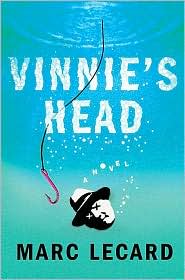PERDIDO STREET STATION
 Trying to review PERDIDO STREET STATION is like trying to explain how the cosmos looks to a blind man; you just have to see it for yourself ...somehow.
Trying to review PERDIDO STREET STATION is like trying to explain how the cosmos looks to a blind man; you just have to see it for yourself ...somehow.Equal parts horror, science fiction, fantasy, and slipstream, Perdido is an incredibly broad novel, covering everything from genetic mutation to magic, and author China Mieville does it all within one town, New Crobuzon, a city of creatures known, unknown and previously unimaginable.
In the simplest terms, it is the story of two characters: Isaac, a scientist who learns about something called "crisis math" which would allow for the resolution and fixing of just about everything; and about Yagharek, a species of flying creatures known as garuda (no, it’s not a type of cheese) who was punished by having his wings brutally removed secondary to a crime he committed amongst his kin. When Yagharek asks Isaac to find a way to make him fly again, Isaac becomes obsessed with the idea. Surrounded by his khepri (half human/half insectile) girlfriend named Lin, a militia that squashes its people like ...bugs, and a group of flying slake-moths determined to eat the minds of anyone who dreams, Isaac and all who become associated with him are headed straight for danger and persecution.
The weaving of an incredible facet of characters and surroundings makes this novel feel epic in scope. A map at the beginning of the book can be used (and recommended) in order to orient the reader to various locales that Mieville frequently refers to (including river byways, railways, streets, and slums).
The horrors of a dictatorial-type government with the capability to "remake" its citizens as punishment is also a pivotal point in the book. Remaking is the process of altering one’s physical and genetic makeup. For instance, if someone were to kill their child, the government could attach the dead child’s arms to their forehead, appendages they’ll carry around for the rest of their life. It also allows Parliament (as they see it) to build unique fighters amongst their militia, enabling those in power to brutalize its citizens.
Although I’ve spelled out a few items contained within Perdido Street Station, I’ve really just brushed the surface. It is a multi-genre, multi-species, and multi-brainbusting novel that enraptures readers and pulls them in. Don’t be surprised, though, if you find yourself scratching your head on occasion and saying, "WTF?" The weirdness of it will probably require at least a few head gouges from anyone. But that’s what makes it so engrossing. You keep reading so that you’ll understand what these characters are and how this society functions under the weight of a near nightmare dreamscape that all culminates at a place known as Perdido Street Station.


/EMP.jpg)









